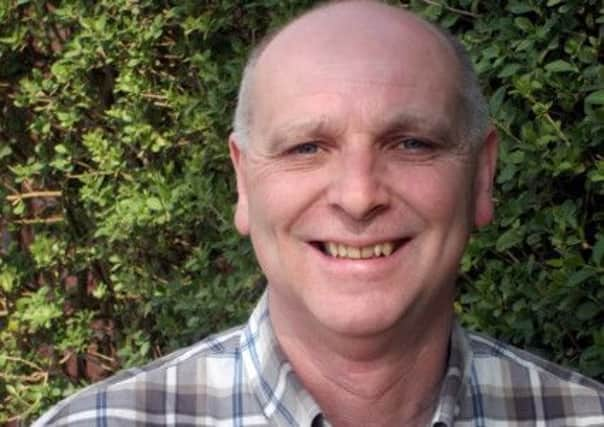Richard Hayward’s Derry connection


The artist’s life is the subject of a forthcoming major BBC television documentary.
Richard Hayward was a pivotal cultural figure in the middle decades of 20th century Ireland. His distinctive presence and unique voice made him one of the most popular singers and actors of his generation.
Advertisement
Hide AdAdvertisement
Hide AdHe sang both traditional Irish songs and Orange ballads. In his writing he explored aspects of Irish cultural history and was a broadcaster and folklorist.
Hayward was born in Southport, Lancashire but his family moved to Ireland when he was a baby and he grew up in Larne, Co Antrim. He later lived in Belfast and devoted his days to promoting Ireland. He appeared in early Irish films and drove around the country from the late 1930s up to the early 1960s gathering material for his books.
Between 1938 and 1964 he wrote eleven travel books about Ireland. These are filled with cultural history, topography, architecture, archaeology, legends and folklore. In his two Ulster books, Derry city and county feature prominently.
For his second Ulster book, Ulster and the city of Belfast (1950) Raymond Piper provided the sketches that included an evocative pencil drawing of Derry’s Walls with the five London cannon on display.
Advertisement
Hide AdAdvertisement
Hide AdHayward described Derry as ‘a Holy City, a remembrancer, a rallying-place and anything but a collection of bricks and mortar’: ‘The situation of the City of Derry is one of striking beauty, lying as it does at a lovely curve of the splendid River Foyle. And in the old city there is much to think about, much to dream about, and lessons which will not be lost on those who have the parts to read and the grace to understand.’
He lamented the fact that the border dealt a ‘severe blow’ to the distributing trades of the city since it was the commercial capital of Donegal and ‘at a swoop that large territory was cut off by an impassable tariff wall.’
Apart from his travel writing, Hayward was also an actor, singer and pioneering filmmaker who laid the foundations of the Irish film industry.
He was acknowledged as a talented character actor and starred in some of the first black-and-white ‘talkies’ made in Ireland. Crowds queued to see these low-budget films in which he took on the lead role. They included his most successful one The Luck of the Irish (1935) which was received well in both Ireland and the U.S.
Advertisement
Hide AdAdvertisement
Hide AdIn 1929 he started singing and recording songs with Decca in London.
By the end of 1933, Hayward had recorded more than 100 songs, many with orchestral accompaniment. He was known as the original Orange balladeer and some of the best loved Orange songs that he recorded included ‘The Sash’, ‘The Protestant Boys’, ‘Derry’s Walls’ and ‘The Green Grassy Slopes of the Boyne.’
The recordings of his Orange songs in the 1950s were highly regarded by the leading music critics of the time. His record ‘Orange and Blue’ was chosen by Gramophone magazine as one of the top six recordings of 1956. For the sleeve cover of one of his records he used a 1940s’ photograph of Shipquay Street looking over the wall to the Guildhall.
In the final years of his life Hayward received awards including an honorary degree which was conferred on him by Lafayette College in Pennsylvania in June 1959. The citation stated that his doctorate was awarded for ‘distinguished services to Irish literature’ and in recognition of his contribution to the development and spread of Irish literature. It recognised his ‘love of Ireland and Irish lore’ and that he ‘had convened the joy in beauty and the love of the country to many.’
Advertisement
Hide AdAdvertisement
Hide AdHis tragic death in a car accident near Ballymena on October 13, 1964, in which two other people were also killed, was widely reported in the press. Richard Hayward was a man of boundless energy, fierce ambition, and infectious enthusiasm.
A series of events is being held in commemoration of the 50th anniversary of his death and a process of rediscovery is underway. For the first time his extraordinary life story has been told in a biography and a one-hour documentary on Hayward will be shown on BBC Northern Ireland television on Sunday October 12. The Linen Hall Library in Belfast is holding a free day-long symposium on Hayward on 24 October, which will be followed the next day by a guided walking tour of the city in his footsteps.
Romancing Ireland, Richard Hayward, 1892-1964 by Paul Clements is available from bookshops or direct from the Lilliput Press at £20 post free anywhere in Ireland: www.lilliputpress.ie. For details of the symposium at the Linen Hall Library go to: www.linenhall.com